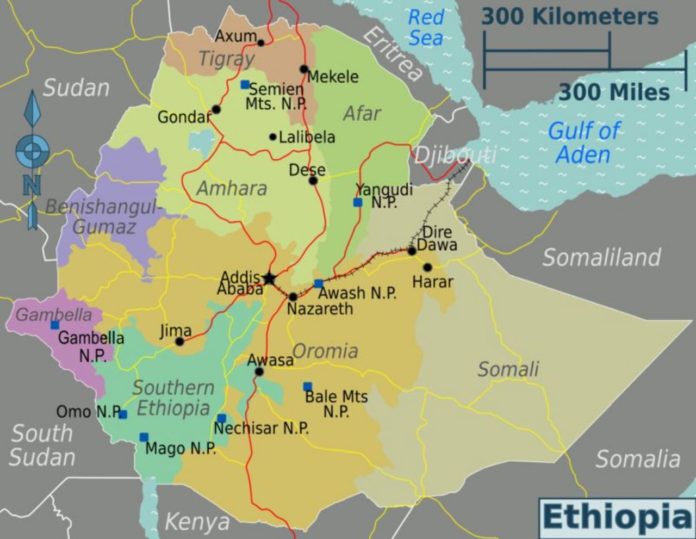MoU
The MoU between Hargeisa and Addis Ababa intended for aquiring or granting souvereign access to sea and a military base with a corridor to Ethiopia, a landlocked country, through an unrecognized breakaway or secessionist region, Somaliland, is a clear violation of IGAD, AU and UN charters and as such creates an unpresedented relational situation between neighbours-Somalia and Ethiopia. The MoU implies
disrespect for the souvereignty and territorial integrity of Somalia.
The MoU could be seen as supporting separatism and undermining the territorial integrity of the parent state-Somalia This could lead to diplomatic and political tensions and further complications leading to bellicose confrontations and hence a regional disstabilisation.
The communication to the UNSC demanding a disregard of the Somali protest letter proves a further disregard and disrespect of international norms and a further incistance on its agression and violations of souvereignty and territorial integrity of Somalia.
In the said communication Ethiopia did not refer to the AU charter nor did she mention her step back or an excuse as demanded by Somalia to pave the way for fruitful negotiation under the AU principles and charter on subjects regarding cooperation, mendind mired/damaged diplomatic relations,rebuilding trust, discudion on trade and a legal maritime access as per UNCLOS convention and more.
The omission of the above simple imperatives definately proves an insistance on her bad intentions or bad faith and a further insistence on ilegally aquiring or occupaying a Somali territory as earilier delared by the Ethiopian PM, press, and officials on several ocations including in parliamentary sessions.
Somalia nullified the MoU lawfully but demanded an Ethiopian revocat ion of the same to normalise and even further advance friendly relations and cooperation.
The Ethiopian strategic purpose of the communication to the UNSC is to deceive Somalia and intend to diverse her from its decison and instead open a perilous avenue-an endless and unfruitful negotiations on the Somali Souvereignty and territorial integrity for the real intention of perpetuating its historic claim of rightful ownership, permanent and forceful souvereign access to the Somali sea.
Somalia must firmly stick to its decission and uphold the principle of “qaniinya qaniinyo kaa fujisa”
Somalia’s decision to reject access to the sea for landlocked Ethiopia can be influenced by several factors, arguments and reasons. These factors are rooted in historical conflicts, legal considerations, and geopolitical interests. The following are some key arguments that Somalia could put forward for rejecting Ethiopia’s all time ambitions and the new coercive attitudes:
1. Ethiopia and Somalia are both among the founding members of the OAU now AU and so are signitaries of the charter. That charter settled all existing or outstanding territorial issues between the independent African nations.
The trade and transit issues of landlocked countries is settled by the UNCLOS,
This convention guaranteed freedom of transit for all commerce through coastal territory.
Somalia maintained and maintains that the UNCLOS and charters of AU and UNO are legally binding and should be honored. This could be complimented by negotiated bilateral agreements reached on good faith
2. No Obligation to Provide Access as intended by Ethiopia:
Somalia must assert that it is under no legal or moral obligation to provide access to the sea for Ethiopia. The absence of a coastline was a result of natural or devine will, historical events and geographical circumstances, not an act or intention of Somalia. Therefore, Somalia could argue that it cannot be held responsible for Ethiopia’s landlocked status and could assert that the onus is on Ethiopia to find alternative solutions and/or honest, legally based and negociable proposals. Generally speaking It must also be noted that Somalia is not under an obligation to negotiate an Ethiopian souvereign access to the sea.
Negotiating under coercion or under the obvious threats and arrogante attitude of the Ethiopian highest authority is a different matter.
3. Geopolitical and National Security Concerns:
Somalia could raise concerns about potential security implications and risks associated with granting Ethiopia a territorial access to the sea. Somalia could argue that it could compromise it’s national security, particularly considering Ethiopiaia’s past and present territorial ambitions and unresolved border disputes between the two countries.
4. Economic Factors:
From Somalia’s perspective, granting Ethiopia sovereign access to the sea could pose economic challenges and potentially harm own ports and trading activities. Ethiopiia’s access to the Red sea or Indian Ocean could lead to increased competition for the Somali ports and potentially disrupt existing trade routes and economic arrangements.
5. Lack of Consensus or Reciprocity:
Somalia could contend that the issue of granting access to the ocean for Ethiopia lacks consensus and reciprocity. While Ethiopia seeks maritime access, it has not made comparable concessions or offered reciprocal benefits to Somalia in return. This disparity has contributed to Somalia’s reluctance to move forward with negotiations on the subject of granting access or not.
It imust also be known that souvereignty is never negotiable nor for sale.
6. Granting a Navy base or military base or souvereign territorial corridor is unacceptable. Souvereignty can not be on sale and is not interchangeable with any thing on earth. Social consequences, risks and implications of a naval base with a corridor are immessurable. This will disturb and negatively affect lifelihoods, national ressource policies inland, shore and off shore economic, political and strategic national interests.




